We are one week into 2022. A year we hope will return some normalcy to our pandemic-weary lives. A year we wish, hope and pray will be full of new and exciting possibilities. Finally.
After last year’s frustrating and ever-changing Covid rules and regulations and so many stops and starts – do I book that flight or not? dare to take that twice postponed holiday? – I’m guessing few of us are sorry to see 2021 fade away in the rear-view mirror.

We are ready – to put an end to cancellations, isolation, separation and fear. To live freely, abundantly and without reservation. We are ready for this new year to be different from the rest. We want to renew, rejuvenate and revive our tired mind, body and souls. But where to begin?
Many of us still make New Year’s resolutions e.g. I resolve to: quit smoking, drink less, lose 15 pounds, learn to play the guitar. Whatever is on your list, chances are it’s aimed at making you a better, fitter, kinder, smarter, more talented person. A better version of last year’s model. That’s a tall order.
After the stress of the past few years, who needs that kind of self-inflicted pressure? We need to find a softer, gentler approach to change. We need motivation and inspiration. We need to be more Italian.
Italians have a lot to teach us about finding every day joy in life’s simple pleasures. About connecting with each other and appreciating what we have rather than seeking something more. Maybe you’ll find something in the following list that resonates in your own life. I hope so. Then you’ll be well on your way to being more Italian.
FOOD
Tagliatelle ragu, spaghetti Amatriciana, pizza, crema di limoncello, Aperol Spritz, Chianti Classico red wine. Just a few of the favourites in our house. Food and drink are the lifeblood of Italian culture. There’s a reason Italian cuisine is ranked the most popular in the world. Yes it’s the flavors, the fresh ingredients, the way they all come together with a generous pour of olive oil in the Italian cucina but it’s more than that. Its the way Italians eat; the how and the when that we can learn from if want to shed those 15 pounds and form a better relationship with food.
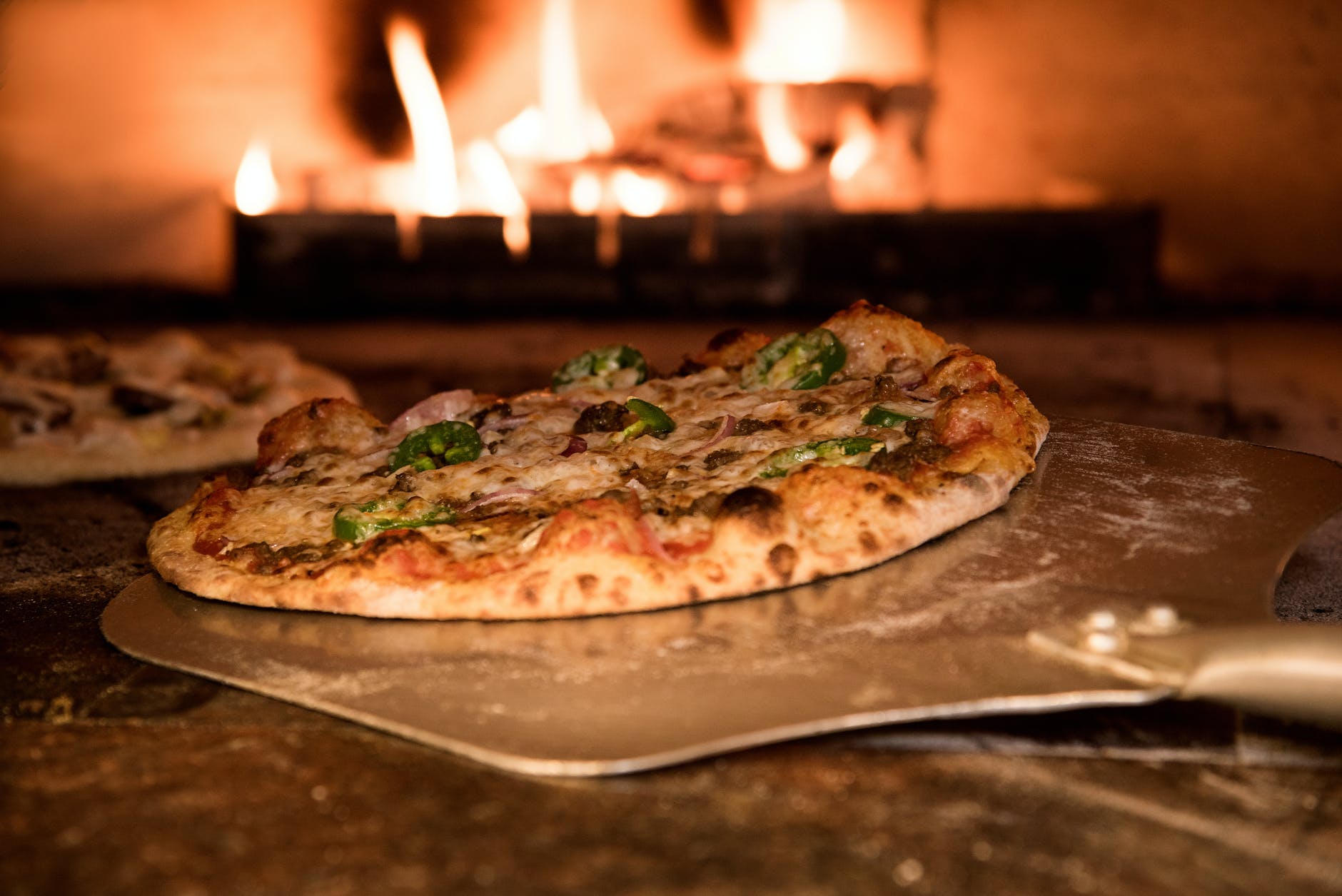
It’s a myth that Italian food makes you fat. In fact, the Mediterranean diet is considered one of the healthiest in the world. Even though the standard Italian menu contains three courses: antipasto; primo, secondo, the majority of Italians are not overweight. Why? It all comes down to portion size. Italians find the idea of ‘super-sizing’ your meal abhorrent.
Just take a look at a typical single serving of pasta. Non-Italians are used to a heaping bowl of spaghetti, smothered in sauce and cheese. We may even go back for seconds (a definite ‘no-no’). Yet a single portion of pasta in Italy is only 80 grams or just shy of ¾ cup. If you want to know a simple trick to getting this amount right, look at the hole in the center of your pasta stirring stick. Fill it with dry pasta and there’s your 80 grams.
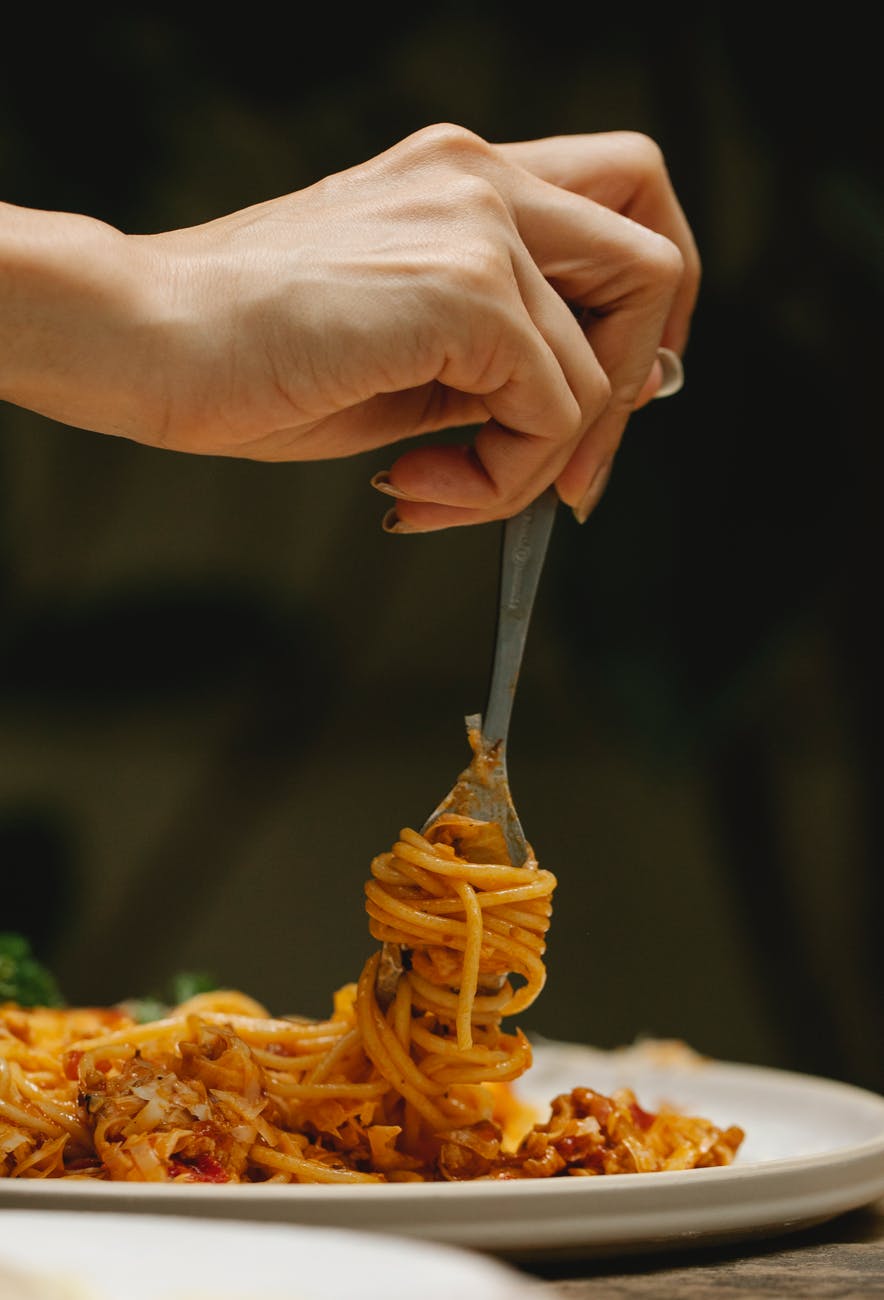
The secondo that follows your pasta primo is likely a small portion of meat or fish accompanied by a contorno (side) of farm fresh vegetables or salad. You may finish with a dolce (dessert) but if you do, chances are this will be your main meal of the day and either lunch or dinner that day will be small.
And don’t forget the rules regarding food timing and combination. They go something as follows: no cappuccino, specifically milk, in your coffee after noon hour; never – and I mean never – put cheese on fish. Speaking of fish, it does not belong on the same plate, or menu for that matter, as meat. Choose one or the other (a subject of mass confusion at our wedding reception lunch in Venice); don’t eat standing up unless you at one of the bacari or appetizer bars in Venice or you are having your morning coffee at the local bar while enjoying some fresh cornetti (croissants).
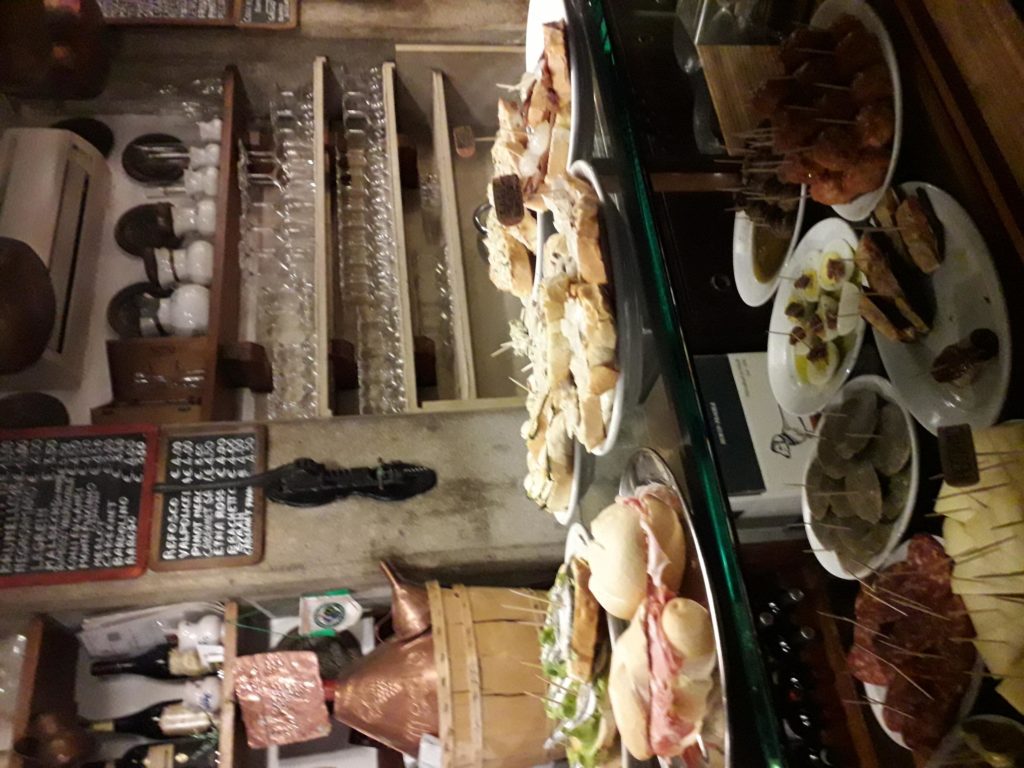
These are the only times it is permitted to remain standing while eating. And let’s not forget pineapple. It is best served at the end of a meal to aid digestion. If you are ever tempted to ask for it on your pizza be prepared for either a verbal assault of epic proportions or the coldest, longest stare from your server. It won’t happen.
Follow these rules and eat like an Italian and you will not only lose weight but be on the road to a much healthier you.
PASSEGGIATA
Italians favourite form of exercise is la passeggiata or the stroll. Notice I use the word ‘stroll’ and not walk. For that is what it is. It is not a heart pumping, arm swinging power walk. It is a slow, gentle meandering through the town or city main streets – a form of parading oneself around town, usually while linking arms with a family member or friend and almost always while wearing one of your best outfits.
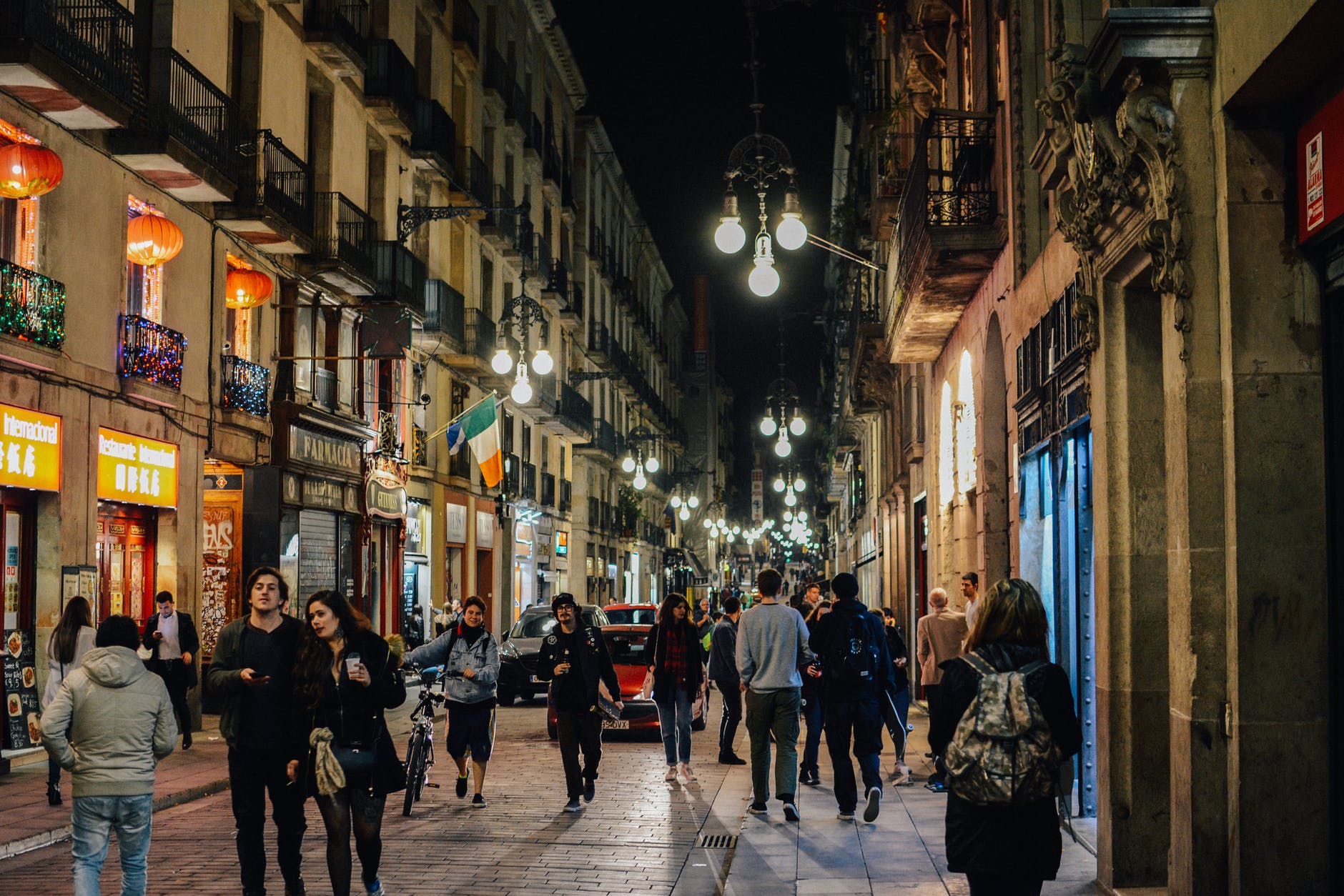
For Italians, the passeggiata is an opportunity to showcase la bella figura, or to put your best foot forward. And it is taken seriously. One of our town matriarchs, Guiseppina, a tiny woman with a 1950s beehive-style head of black hair, would always walk through the town streets decked out in her finest. In winter, her amber fur coat, leather purse clutch, long gloves and pearls signaled that any walk is one worth celebrating.
Usually la passeggiata is taken after dinner, to work off the evening meal before going to bed. It is something of a work out after all. Just a gentler, more sociable way to burn a few calories. Exercise like an Italian and chances are you’ll sleep sounder – and have caught up on the latest town gossip.
ARIA FRESCA
Italians have a love/hate relationship with aria fresca or fresh air. There are rules involving fresh air. It is important you take in some of it, preferably while enjoying the above-mentioned passeggiata. Or you could while away the day gardening, or pruning olive trees, as long as you spend some time outdoors breathing in the rosemary-scented Italian fresh air.
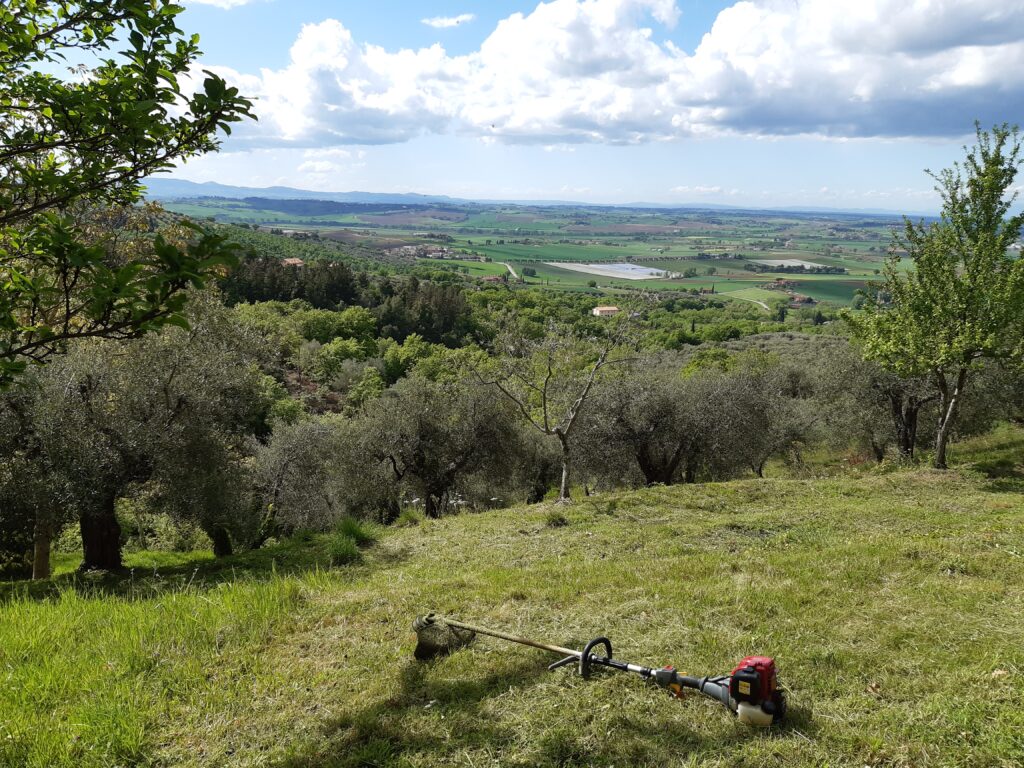
Daytime fresh air is good. Nighttime fresh air is bad. Italians think it is unwise to let in the ‘night air’. They believe it can make you sick. Keep the windows closed in your bedroom, even on a steamy hot summer night. And don’t even think about air conditioning. Italians are very suspicious of air conditioning as a rule. It’s not natural after all. Use a fan if you must.
To throw a bit of a curve-ball in the fresh air rule-book, you should also never let cool air hit the back of your neck during any time of day. That’s why you see Italians wearing some form of a scarf at all times of the year. You know the ones I’m talking about – those long multi-colored linen scarfs both genders manage to twist and turn into a fashion statement with seemingly little effort. Those. Wears those and you will avoid any number of ailments this year.
COMMUNITY
When researchers looked into why there are so many centenarians living in so-called Blue Zones in Japan and Italy, they found a direct connection to a strong sense of community. All of the seniors who reached 100 and beyond had a sense of purpose and felt part of a network of friends and family in their community.
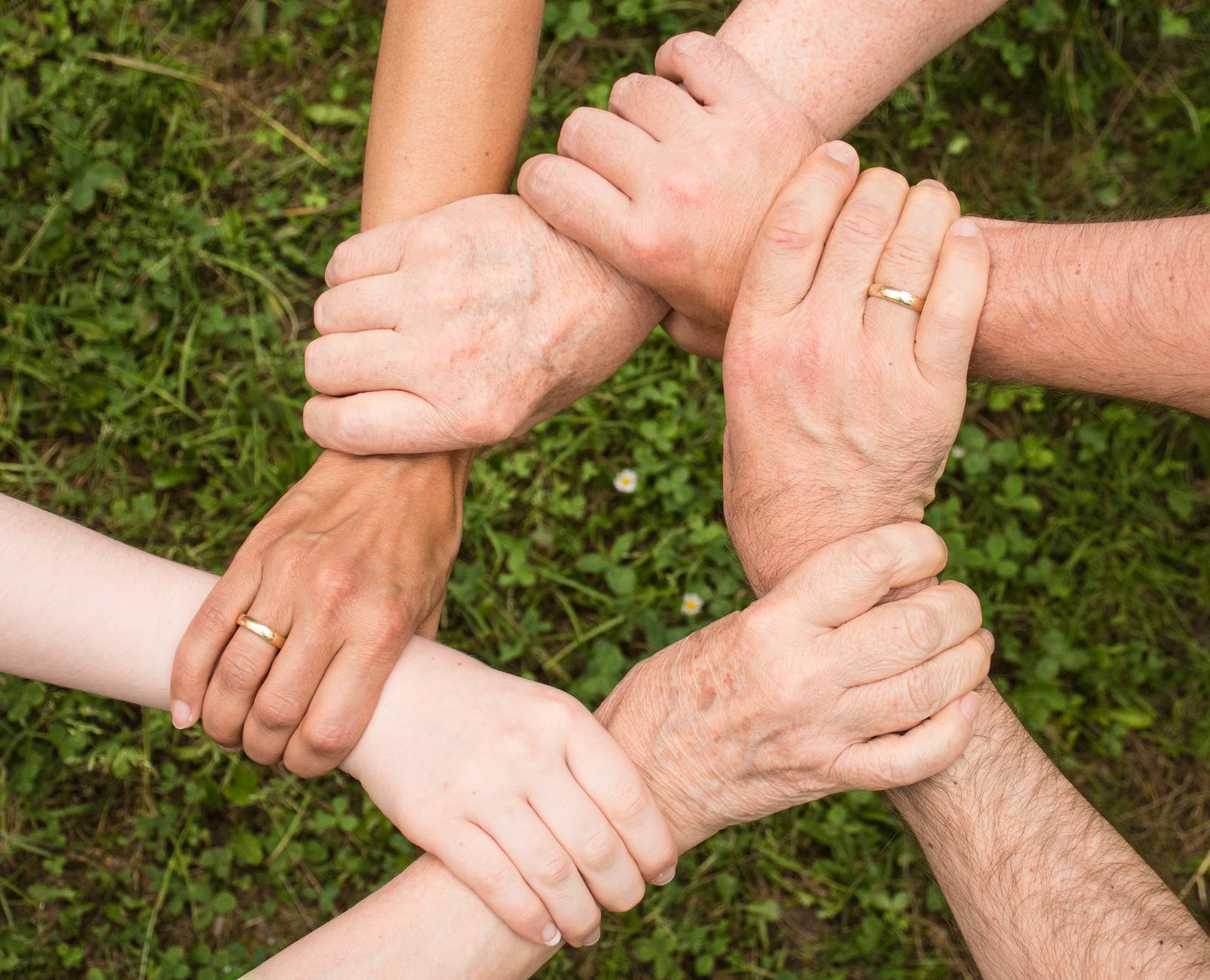
We need each other. Of that, there is no doubt. Here in Italy, the sense of community in small towns throughout the peninsula is essential to village life. Neighbours look out for each other. Nobody is left to struggle alone.
A few months ago, a single ex-pat living alone broke her foot and was told she couldn’t walk for at least a few months. She needed everything done for her: groceries brought in, meals cooked, transport to medical appointments. Within hours of the accident, the community had rallied around her. A roster was drawn up for who would do what on the necessary ‘to-do’ list. Friends took turns spending the night for the first two weeks to help her if need be. She was not alone.
Simply put, our connection to those around us is integral to our mental and physical health and can literally help us live long and healthy lives. But staying connected has been difficult during the pandemic. We’ve been forced to shut ourselves in, isolate from those we love, cancel meaningful celebrations and avoid the healing touch of hugs and kisses. It has taken a toll on all of us and led to long-term bouts of depression and anxiety. It’s time we paid more attention to our mental and spiritual health.
The virus will run its course. There will be an end.
Until then, we need to find ways to take care of ourselves and those we love. Make that phone call you’ve been putting off. Write a letter, an actual hand-written letter and mail it to someone you know could use a pick-me-up. And if you’re not already doing it, start journaling. Write about your day, your hopes and dreams. Remind yourself tomorrow will be a better day. Because it will be. And be more Italian. Stay connected.
LESS IS MORE
I am constantly amazed by how Italians find joy in everything. They love to laugh. They love to spend time together. And when they are in each other’s company, Italians talk about food and family. A lot. They rarely discuss work or material things. They talk about the things they value – and those are the things money can’t buy.
I’m not suggesting Italians don’t aspire to have a beautiful home or an expensive car. I’m saying they don’t obsess or covet. They may save and plan but in the meantime, they are happy with what they have. They seem to have figured out how to live in the ‘now’ and appreciate today.
The Italians I know are happy with a small wardrobe of good quality clothes; with a home that is not as they say ‘exaggerated’ but big enough to house their family comfortably.
During the first lockdown, when other cities in the world struggled with empty shelves in grocery stores due to hording, Italian markets throughout the country remained fully stocked. There were no empty shelves; no fighting in parking lots over overflowing carts of toilet paper. Italians took what they needed. No more. No less.
Be more Italian. Be happy with what you have. Find joy in the now.
Happy New Year. Tanti Auguri. May this new year bring you much love and laughter.
A presto
Anna
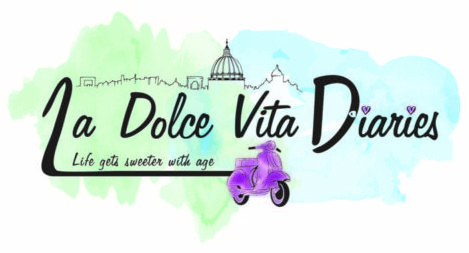
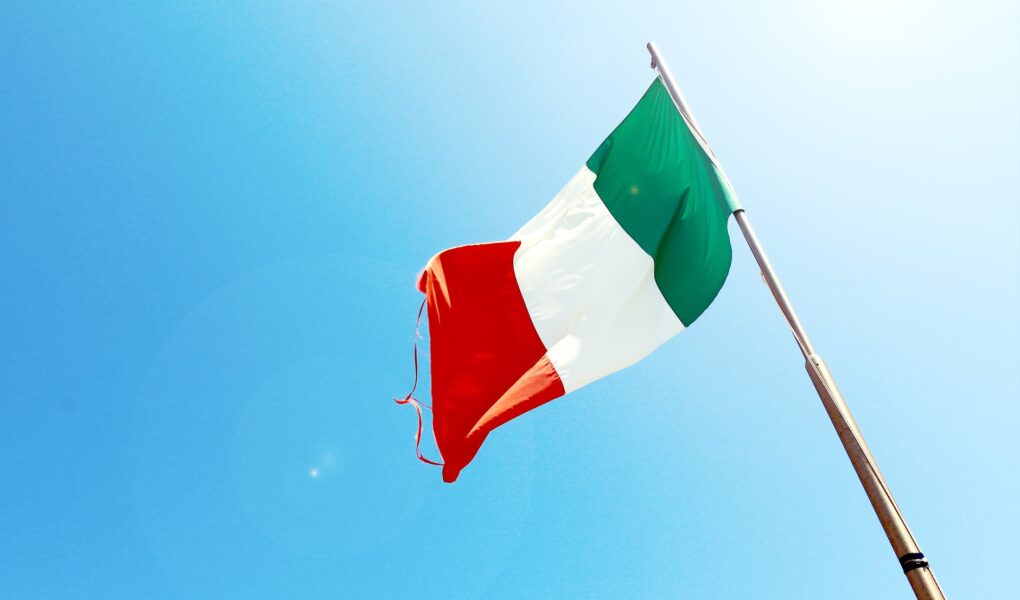
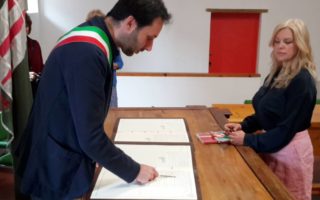

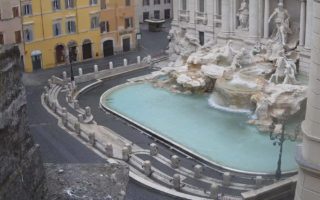



Nailed it. Well done!
I’m posting this on my mirror to remind me everyday of all the great reasons why I can’t wait to get back to my Italian home. Thank you!!
Bella vita italiana!!
I felt a certain joy and tranquility reading your post. Can’t wait to return!
Love it!!Great writing,can’t wait to come visit!!Bravissima!!